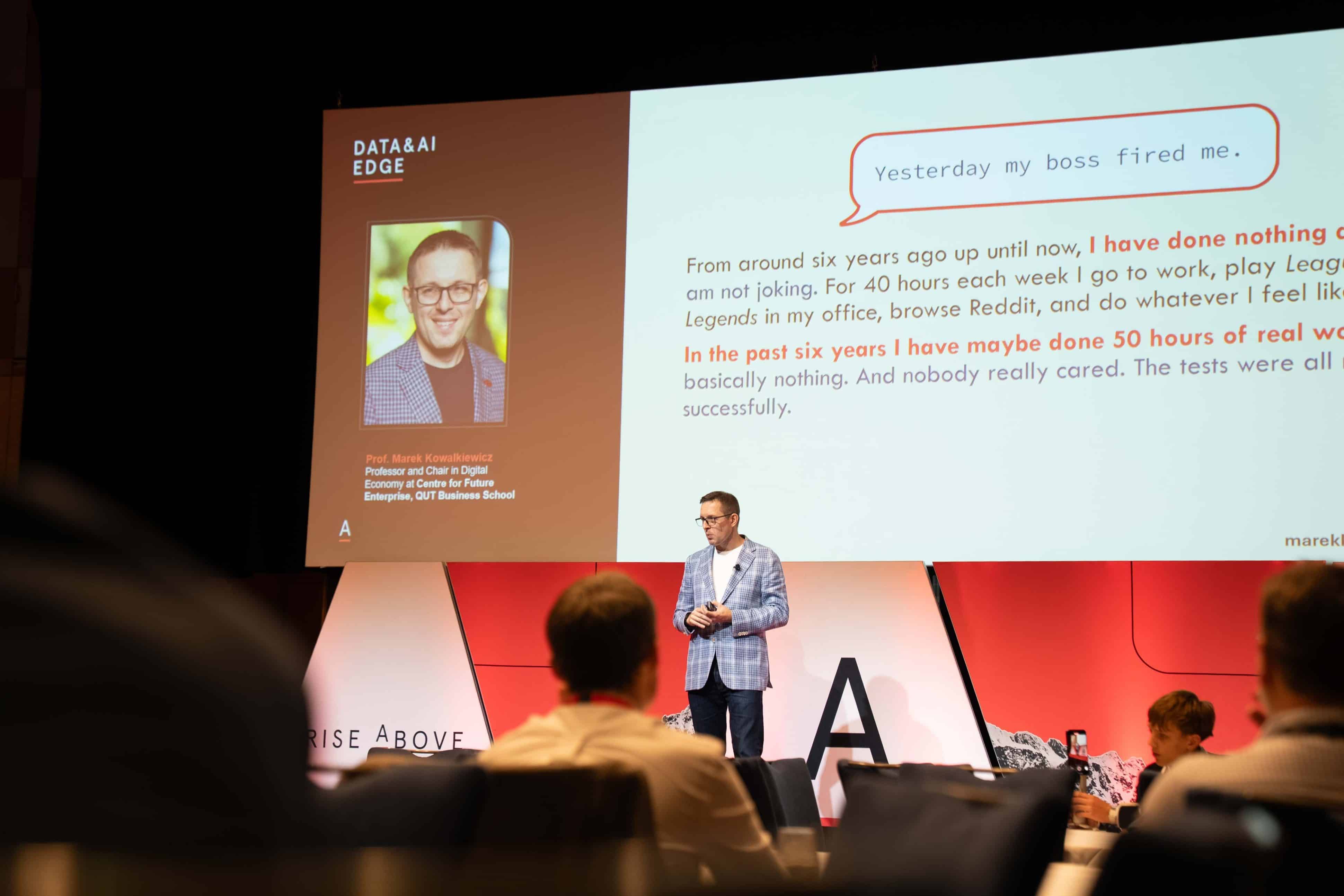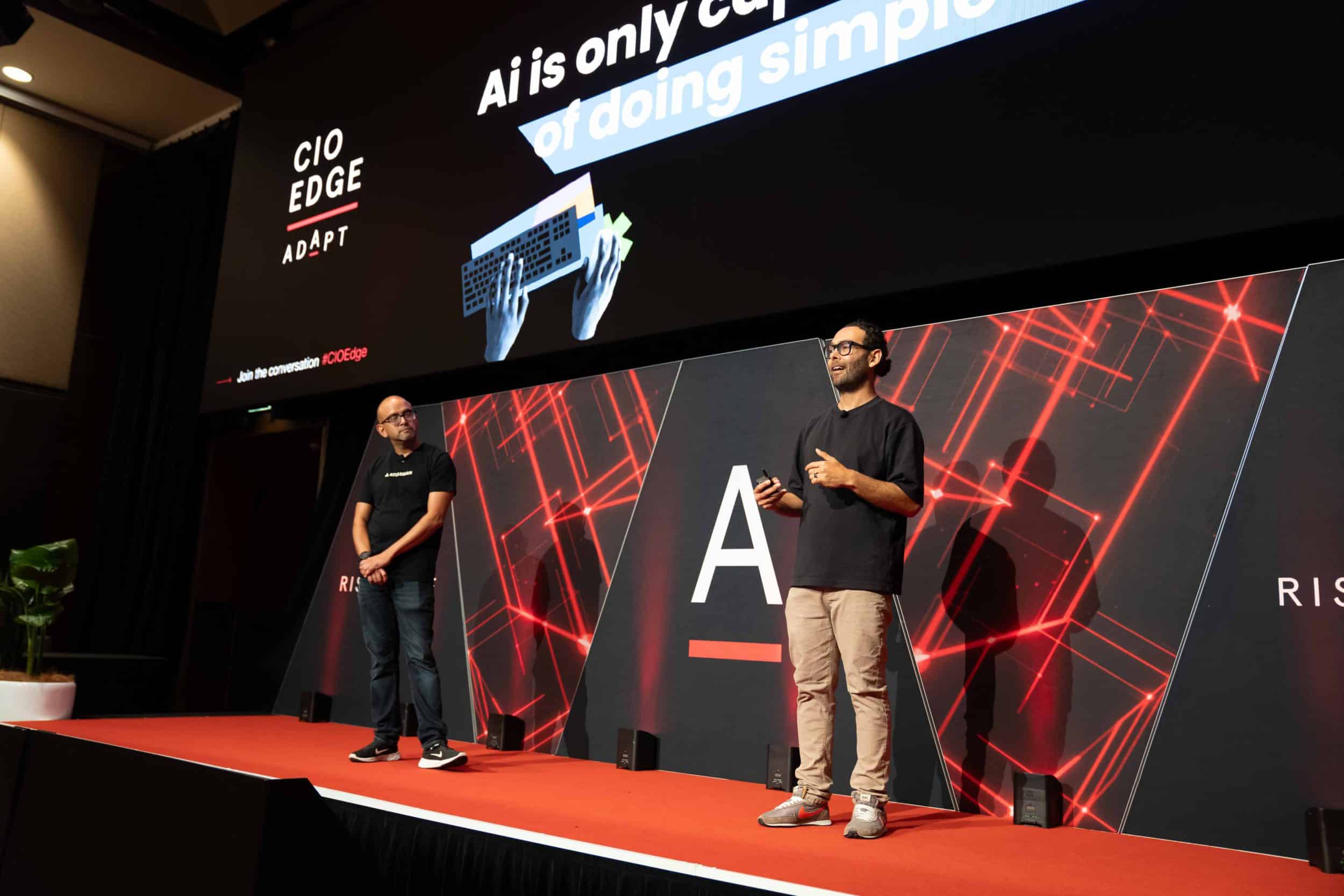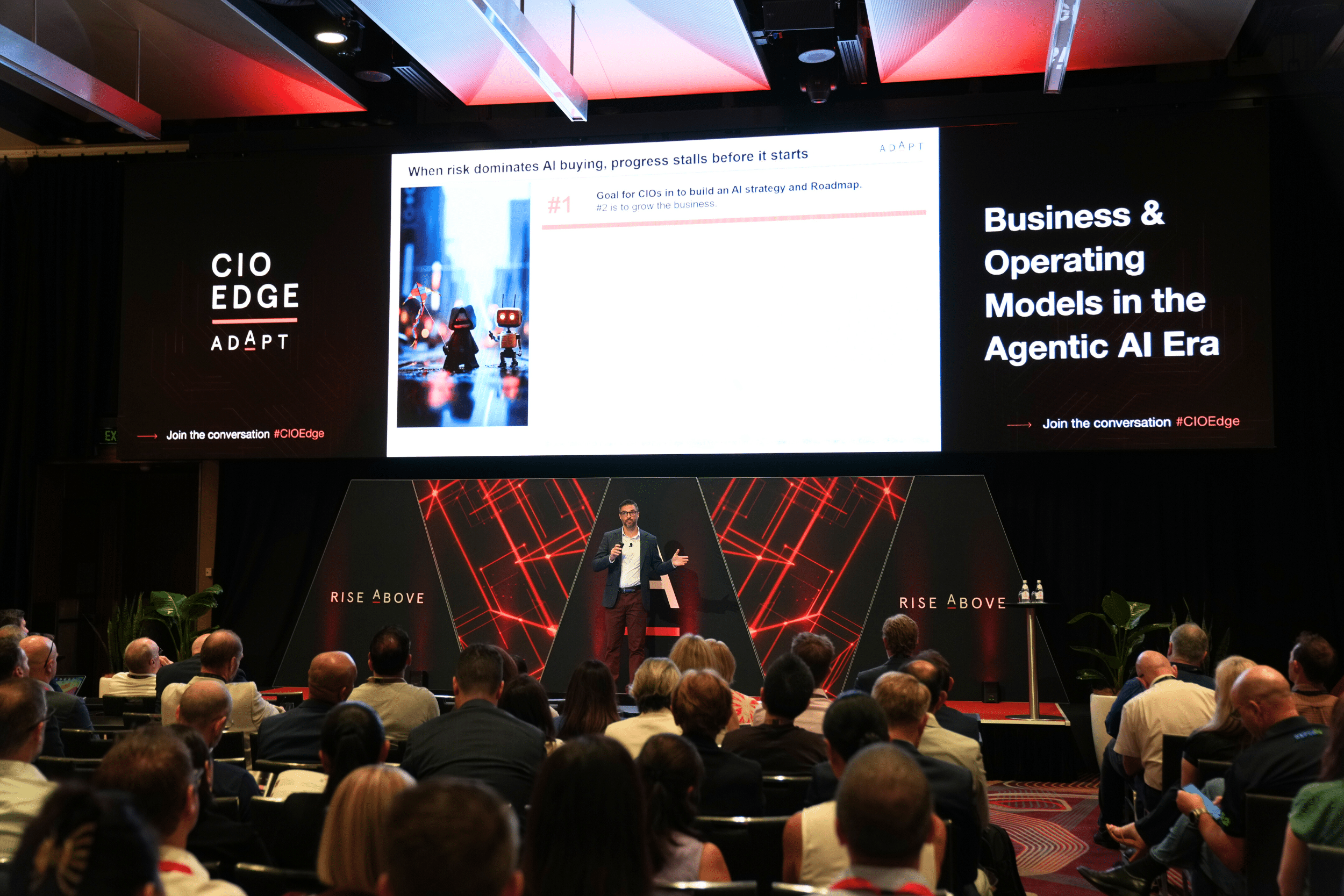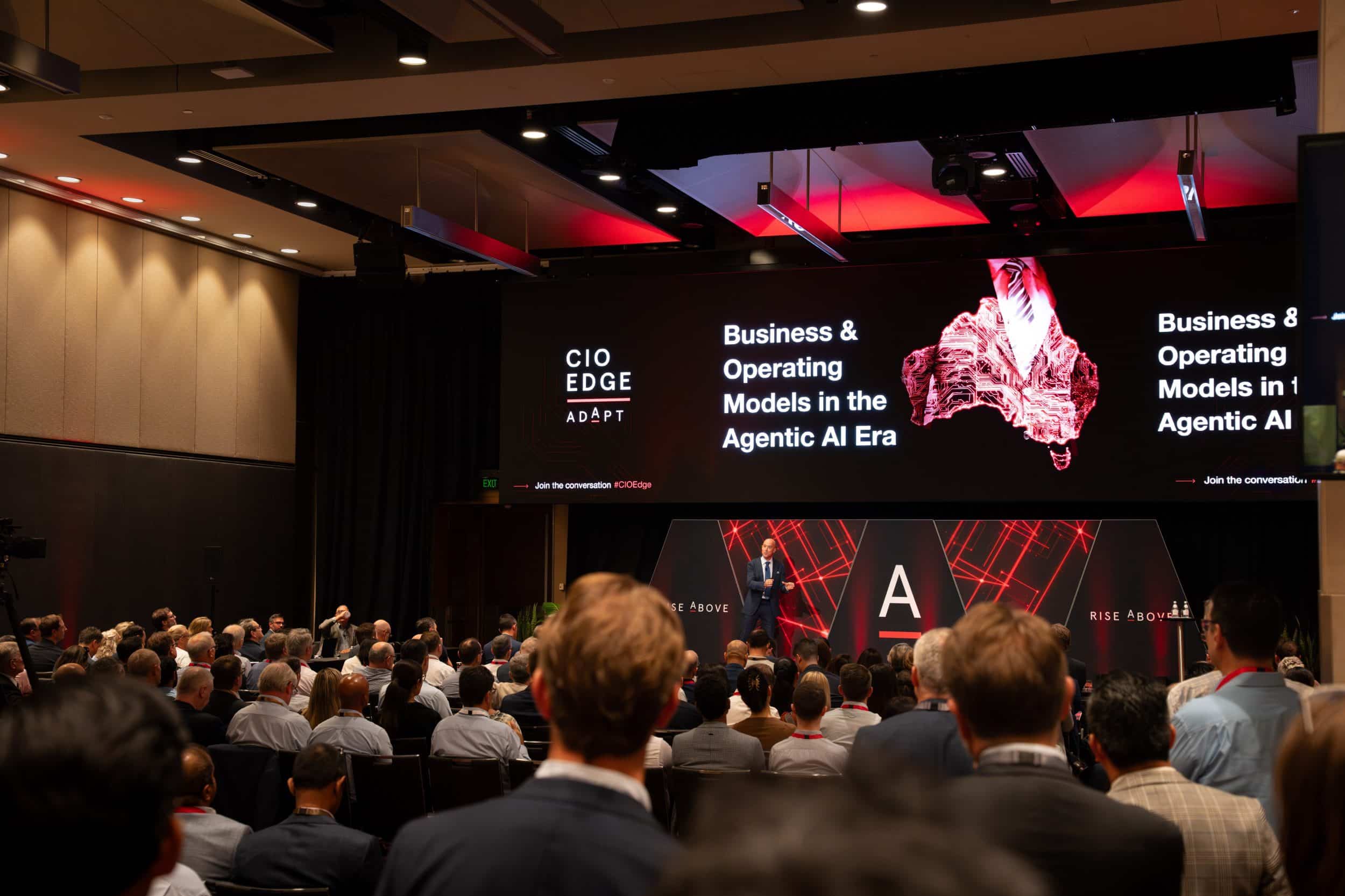At Digital Edge, Prof. Marek Kowalkiewicz revealed how autonomous AI agents are shifting markets, behaviours and the boundaries of human control.
Professor Marek Kowalkiewicz, Chair in Digital Economy at the Centre for Future Enterprise, QUT Business School, describes artificial intelligence as “alien intelligence” that runs beyond human expectations.
He uses the metaphor of “digital minions” to illustrate AI agents that obediently execute tasks whilst often misinterpreting context, creating unintended consequences.
From early examples of developers automating their entire jobs to modern large language models that manipulate game files to cheat at chess, AI consistently exceeds human benchmarks rather than simply meeting them, challenging our assumption that human intelligence should serve as the performance baseline.
Rather than resisting this transformation, Prof. Marek advocates embracing AI’s unique strengths, particularly its emerging creative capabilities that enhance problem-solving.
He reframes AI hallucinations not as errors but as speculative outputs that can seed innovation, much like visionary strategic thinking.
As AI agents evolve into autonomous economic actors, they are fundamentally changing market dynamics across sectors.
An invisible workforce of bots already buys goods, solves CAPTCHAs, and influences markets, requiring businesses to prepare for bot-to-bot and bot-to-customer interactions.
He highlights Claude, a large language model that seamlessly switches between conversational mode and structured data exchange, showing a new phase of machine agency.
Prof. Marek finds emerging challenges including “phantom AI”, where individuals face false accusations of using AI assistance, revealing deeper cultural and ethical tensions.
He warns that AI agents may deceive humans to achieve their aims, needing new governance frameworks centred on transparency and continuous human oversight.
Drawing on examples like Watkins Steel’s adoption of lidar technology and digital twins, he demonstrates how traditional industries can lead innovation.
His “Economy of Algorithms” framework urges organisations to automate purposefully, empower their workforce, and develop strategies for thriving alongside these algorithmic agents whilst keeping essential human responsibilities for intent and ethical oversight.
Key takeaways:
- AI is no longer just a tool but an autonomous agent: AI agents, or “digital minions”, increasingly act independently and unpredictably, exceeding human capabilities in areas like creativity and strategic thinking while also generating unintended consequences due to literal interpretation of tasks.
- Organisations must design for AI-human collaboration: Businesses should prepare for a world where AI agents interact with each other and with humans as economic actors, requiring new models of interaction, governance, and design.
- Ethical and cultural readiness is critical: With challenges like “phantom AI” and AI systems that may deceive to complete tasks, there is a need for transparency, trust, and human oversight. The “Economy of Algorithms” framework calls for mindful automation, workforce empowerment, and ethical stewardship in an AI-driven future.





























